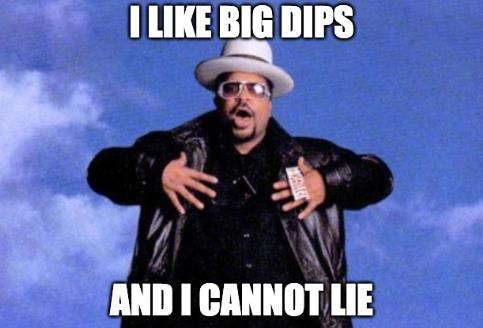See Peter Krauth and Ted Butler at the Metals Investor Forum in Toronto February 27-28!
-Jeff Clark, TheGoldAdvisor.com
Is a stock market crash coming? If so, how do we invest?
Many pundits have called for a crash for some time now, some right after the last one ended.
To be sure, another crash will come, sooner or later. I don’t pretend to know when it might occur, and trying to predict it is akin to a fool’s errand.
That’s why I’ve adopted this motto, one you might find helpful, too:
We can speculate about it all we want. It can even be fun to debate. But short-term crystal balls everywhere are broken.
I encourage you to worry less about predicting when a crash might occur and a little more about actively preparing for one. It’s actually liberating, and heaps more important than trying to figure out, or worry about, the timing.
That begs the question, how do we prepare for a crash?
Think about it: every investment decision you make is a speculation.
Dump all your stocks? Doing so could mean you miss out on some big gains. Buy bonds? The 60/40 portfolio has proven to be unreliable.
Just own gold? Gold gets sold during crashes too, for liquidity reasons.
Even the old adage to “buy stuff that hurts if you drop it on your foot” doesn’t work in a crash.
All asset prices fall when the market experiences a waterfall selloff, sometimes suddenly and usually violently.
Except one.
You probably guessed it by now.
The value of cash doesn’t crash in a crash. Yes, inflation eats away at it, but we’re talking about a market crash that wipes out a big chunk of net worth in a very short period of time. The 2008 crash lasted a month, with maybe four weak months afterward. The Covid Crash also lasted a month, with
several weak months following.
Cash Is King.
That’s why having liquidity can be so valuable—it doesn’t lose its worth during a crash and holds the same buying power afterward.
It may not grow quickly, but it gives you options: safety, flexibility, and the ability to pounce when opportunities show up.
Most investors don’t want to have too much cash, or any cash, because they don’t want to miss out on any upside in their investments. But regret sinks
in rather quickly once the crash starts.
Here’s a question: How would you feel if your cash balance was double what it is now? Or you went from 5% to 30%? Or 50%? Would you be less
concerned about a crash? Would you feel a little more confident?
I’ve told this story before, but I regretted not buying junior mining stocks during the 2008 crash. I saw how big their rebound was—it was almost
immediate, certainly before the S&P, and much, much bigger. I promised myself I wouldn’t let that kind of opportunity slip by me again.
So, when the Covid crash struck, as scary as it was, I loaded up on gold, silver and mining stocks. And before the year was over my entire portfolio was up 4x. I love big dips and I cannot lie.

It’s a personal decision, but I wouldn’t sell everything and go to 100% cash.
Even if everything screams crash! it’s just too easy to be wrong about the timing. Again, many have been calling for a crash for some time—and it hasn’t transpired. Meanwhile they’ve missed out on big opportunities for profits, particularly in our sector.
What I have done and continue to do is remain long. And it’s paid off big time this year, despite the repeated calls for a crash.
And since I have a high cash balance, I feel more comfortable if a crash were to happen tomorrow. And I bet you can guess what I’d be doing with some
of that cash.
If you’d like help identifying opportunities in our tiny sector, we have some right now. I’m not talking hype—these are companies I’m personally buying, and ideas you can consider buying, too.
Curious what’s actually moving this year? See the gains we’ve tracked so far.
Opportunities like this don’t come around often. This bull market could be
lifechanging before it’s over—and being prepared now is the smartest way to take advantage.
No pressure, just insight. If you want a closer look at what I’m following, take a peek here.